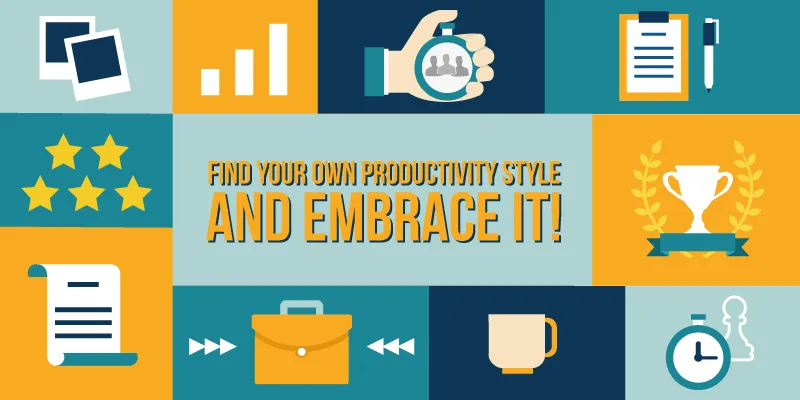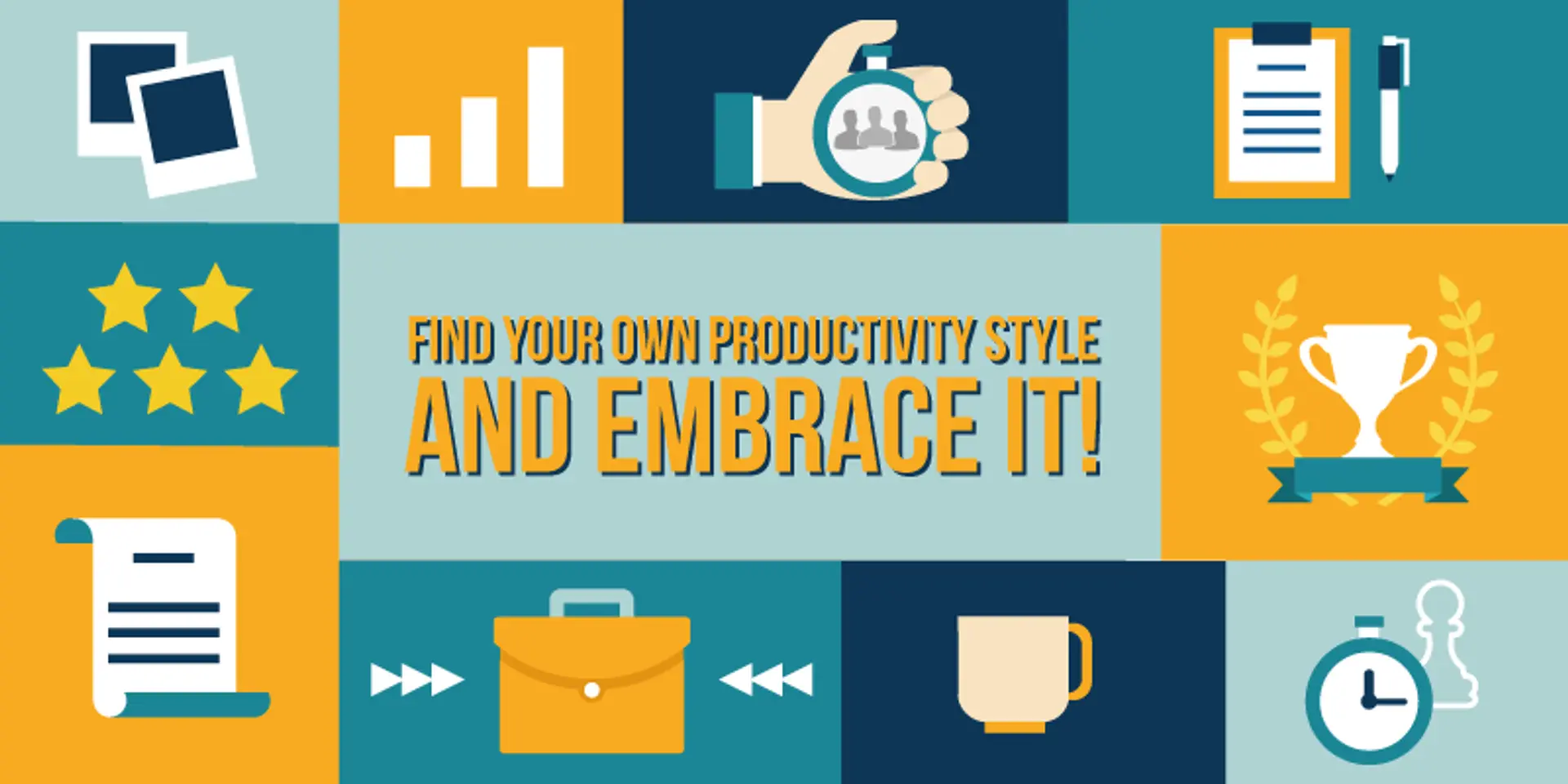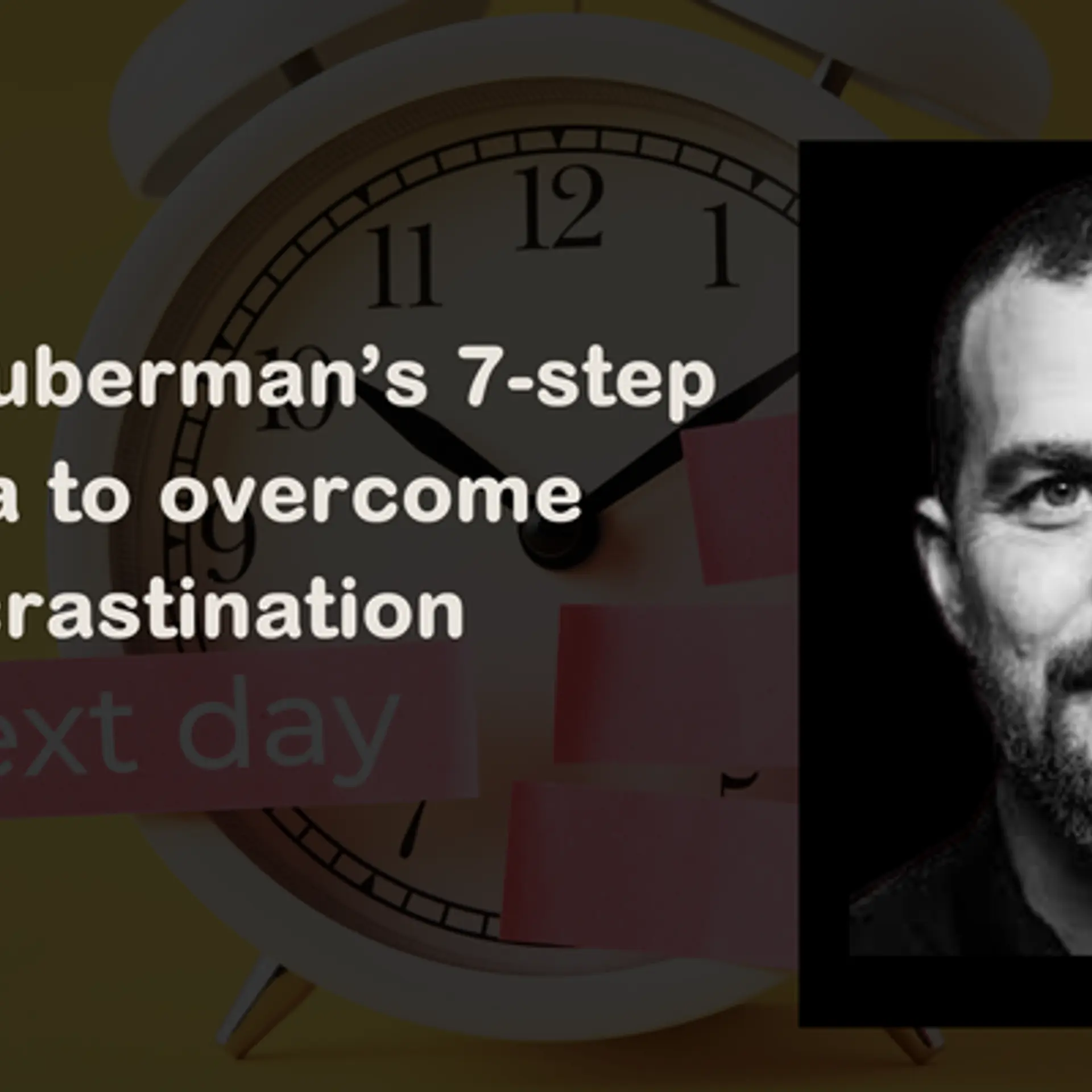Find your own productivity style and embrace it!
I must confess, I think I’m turning into a productivity junkie. I rearrange things on my desk every time I take a break; I have a master list that tracks the progress of all my other to-do lists; I thrive on tools that help me save time and make me more productive; I read and respond to emails as soon they pop into my inbox; I am all about not just getting things done but getting even more things done. You get the picture, right?

Image : shutterstock
However, I am nothing like the ‘ideal’ prototype of a productive person that these umpteen ‘be more productive’ articles talk about. I absolutely hate waking up early in the morning. The first thing I do as soon as I wake up is check my phone for new mails and messages. I don’t recite affirmations to stay on track nor do I list down things that I am grateful for. (P.S: I really have nothing against people who do so, by the way. To each, their own!) Yet, I manage to complete work within deadlines, find time to indulge in my hobbies and have a wonderful work-life balance. Now, how is that?
The rather simple answer to this is: I know what works for me. More importantly, I know for sure what doesn’t work for me. For instance, I am at my productive best at night. There have been times when I have tried to pull myself out of bed early in the morning only to feel grumpy, irritable, tired and sleepy through the day. I think this was my starting point. Rather than trying to conform to the best-accepted standards of productivity, we need to figure out what works best for us individually. Each of us has unique working styles, and, hence, unique productivity styles. Only if we tap into our own ways of achieving the best results can we make the best use of the time at hand.
Know your style
So how do we identify our productivity style?
According to Carson Tate, author of ‘Work Simply: Embracing the Power of Your Personal Productivity Style’, “A person’s productivity style is their approach to planning and allocating efforts across goals, activities, and time periods. This approach is usually unconscious and unsystematic rather than deliberate and rational.” Carson, true to her claims, simplifies this for us by offering to assess our style for free.
Depending on your answers to a set of simple questions, Carson tells you whether you are a “prioritiser, planner, arranger or visualiser.” A prioritiser is someone who thinks realistically and makes decisions based on logic and fact. While planners may, at first sight, look like prioritisers, they pore over tiny details of the project whereas the former cleverly picks out only those details that help them deliver. A planner is organised, an arranger thinks emotionally and a visualiser prefers holistic, intuitive and synthesised thinking.
The test gives you points for each of these categories and the one that you score highest on is closest to your personal productivity style. For instance, I got a high score on planning, an equal score on both prioritising and visualising and the least on arranging. This just means that I am someone who works better with plans and likes to have things around me organised. Carson also offers, what she calls, an overview of the different productivity styles, giving interesting trivia, productivity tools to suit each style and outlining the strengths of each style.
Find your strengths
Some of us may find it easy to identify our strengths and weaknesses. We might already know that we don’t work well in teams or that we have near-awesome persuasion skills. But, for the rest of us who need a clear-cut idea of what we are good at and what we need to work on, there are so many online tests that can help us out. I tried one of the longer and more detailed ones (with 86 questions! Phew!) of the many on offer.
Such tests put your positives and negatives in writing right in front of you. Now, the point here is to not try and “fix” your weaknesses. It is, in fact, to recognise and acknowledge your strengths and figure out ways to use them to the best effect. Dwelling on your weaknesses is only going to pull you down and reinstate negativity in you.
Tailor your activities to fit your unique style
Once you have a vague idea of your style and your strengths, start rearranging your work day around it. So, if you are a morning person, get the most difficult tasks on your list done right after you are up. Do you find it hard to work well in a cubicle? Try to squeeze in at least a few of your work hours in a more open space, say, an empty conference room or maybe the cafeteria. Do you hate to be disturbed while working? Plug those earphones in and pretend to listen to music! Do you find it difficult to concentrate for more than 20 minutes at a stretch? Take a break, get up, grab a cup of coffee or take a walk. It is, indeed, that simple.
So the next time you read articles that promise to increase your productivity, stop right there and put them aside. You are the best judge of what works for you and let no one tell you otherwise. Own your personal productivity style, take control of your work and life, and get things done in your unique way.
(Disclaimer: The views and opinions expressed in this article are those of the author and do not necessarily reflect the views of YourStory.)







